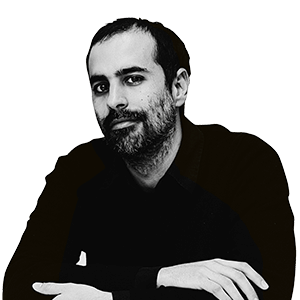San Sebastián remembers ETA's violence and is outraged by the Palestinian genocide.
Agustín Díaz Yanes presents the thriller "A Ghost in the Battle" on the Festival's most vindictive day.


Special Envoy to San SebastiánIn the historic district of San Sebastián (Alde Zaharra or Lo Viejo, as it is known) is the restaurant La Cepa, where it is likely that the journalists accredited to the San Sebastián Festival have dined at some point because the food is good, it has a good quality/price ratio and it is not far from the Teatro Principal, where the press screenings are held. But surely more than one of you discovered this Wednesday at the screening ofA ghost in battle La Cepa is also where San Sebastián City Councillor Gregorio Ordóñez was eating when ETA shot him in the head in 1995.
ETA no longer kills – only in the cinema – but the wounds from the years of terrorism are in plain sight, and the thriller by Agustín Díaz Yanes, but also from the documentary Argo(h)izan: Torturaz argi hitz egiten, torture argizan (Speaking clearly about torture, clarifying torture), which collects the witnesses of thirty victims of police torture in the Navarrese region of Sakana between 1966 and 2011, and even a short documentary on the death of Ordóñez produced by The Basque Daily, a newspaper belonging to the Vocento Group.
The murder of Ordóñez is, precisely, one of the first scenes ofA ghost in battle, a film that makes comparison with the recent The infiltrator, as it also tells the story of the infiltration of the ETA organization by a police officer, played in the film by Susana Abaitua. The differences are, in fact, minimal: Díaz Yanes' film has a more panoramic approach to the Basque conflict and the character of Abaitua – in a less expressive acting style than that of Carolina Yuste in The infiltrator– is not based on a real person, but rather a fictional account created by several undercover agents. Now, both films approach the Basque conflict with the same tools: the narrative codes of the detective genre—including the exaggerated portrayal of some characters as good guys and bad guys—and an ideological sensibility very close to that of the narrative of Spanish nationalism, despite some unexplained hints about torture at the Intxaurrondo barracks.
They are so similar, in fact, that it is hard to understand why last year the Festival did not want to program them. The infiltrator, which ended up winning the Goya for best film –ex aequo with The 47–, and now, however, it is shown in the official section (out of competition) A ghost in battle, which doesn't present any cinematic values that make it better. It's not that the Basque festival has avoided the subject in recent years: Julio Médem's documentary premiered there. Basque pelota (2003) and Jordi Évole's interview with Josu Ternera My name is not calf (2023), but also comedy Faith of ETA members (2017) and the drama Lasa and Zabala (2014), about the kidnapping, torture and murder of two ETA members.
An outcry against genocide
The other focus of the day was the parallel section Perlas, where the heartbreaking drama premiered The Voice of Hind (The Voice of Hind Rajab). The film, awarded at the Venice Film Festival, recreates almost in real time the hour and a half of maximum tension and pain experienced in January 2024 in the center where Red Crescent volunteers answered the call from Gaza of a six-year-old girl shot by the Israeli army, who first killed the girl's uncles and cousins and the workers.
After the gala screening of the film, two of the Palestinian actors in the film, Motaz Malhees and Saja Kilani, led a demonstration in support of Gaza accompanied by Palestinian refugees and filmmakers such as Isaki Lacuesta and Julio Medem. Thousands of people went through the streets of San Sebastián for about an hour, shouting "It's not a war, it's a genocide", "Boycott Israel" and "Palestine askatu (Free Palestine)". Organized by various entities from the film world, the march was attended by the Spanish Minister of Culture, Ernest Urtasun, and the director of the San Sebastian Film Festival, José Luis Rebordinos, as well as actors such as Arturo Valls, the musician and director Fermin Muguruza, and the director José Luis Guerin, who premieres this Thursday.
"Don't stop, don't tire, don't give up," urged Mohammed Farahjallah, a Palestinian living in the Basque Country, at the end of the march. "Thank you to all who have spoken out about this genocide and demanded justice for Palestine. Every word matters, every voice matters," he added. The event concluded with a collective reading by actors and directors—Alberto San Juan, Isaki Lacuesta, and Itziar Atienza, among others—of a film industry manifesto denouncing that "Hind died not only from an explosion, but from the indifference of the international community" and ending with an urgent call to action for governments to "act and make decisions [...], because Gaza has no more time."
